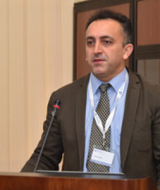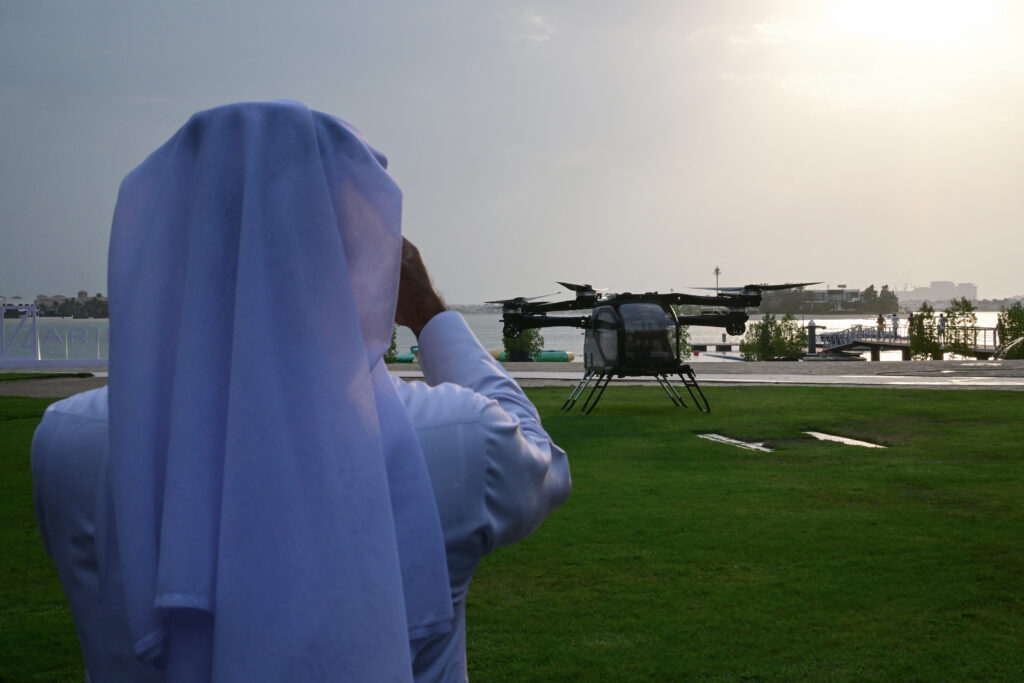
- 30 Mar 2021
China’s Political Entanglements in the Middle East: Escaping Inevitability?
(This event is jointly organised by MEI’s Political Economy Research Cluster and Gulf Research Cluster)
Abstract
Beyond significantly enhancing its economic footprint, China has forged comprehensive strategic partnerships with key Middle Eastern states including Saudi Arabia, the United Arab Emirates, Iran and Egypt. China hopes that its economic clout and efforts to be the region’s technological juggernaut as part of its Belt and Road Initiative and Digital Silk Road will shield it from being consumed by the myriad of conflicts in the Middle East. However, whether this is sufficient to protect from China’s mushrooming interests in the region at a time of strategic rivalry with the United States- which is seeking to reconfigure its commitments in the Middle East- is yet to be known. The Middle East Institute at the National University of Singapore will be hosting a panel of experts to explore China’s options.
This public talk will be conducted online via Zoom on Tuesday, 30 March 2021, from 4.00pm to 5.30pm (SGT). All are welcome to participate. This event is free, however, registration is compulsory. Successful registrants will receive a confirmation email with the Zoom details closer to the date of the event.
Photo by zhang kaiyv on Unsplash
Listen to the full event here:
Watch the full event here:
Read the Summary of Event Proceedings:
By Ilyas Salim
Research Assistant, Middle East Institute, National University of Singapore
Dr Guy Burton
Adjunct Professor, Brussels School of Governance
Dr Guy Burton said that contrary to popular contemporary opinion, China is by no means a new player in the Middle East and in fact, has had significant engagement with the region since the 1950s. He described China’s role in these early decades as a ‘spoiler’ due to its support for various insurgent groups (such as the Palestinian Liberation Organisation) as part of its ideological and geopolitical efforts to compete with the US and the USSR during the Cold War era.
By the 1980s however, China’s burgeoning status as net oil importer led it to pursue more economic and diplomatic relations with the Middle Eastern states. In accordance with this change, China became more supportive of stability within the Middle East but remained cautious, shirking from any responsibilities to provide more security in the region — this marked a shift in roles from ‘spoiler’ to ‘shirker’. Dr Burton noted that the US invasion of Iraq in 2003 allowed China to benefit further economically through business contracts whilst avoiding risky security commitments within the Middle East.
Dr Burton finally noted that China’s role in the Middle East today may be in the throes of another transition to a more active one. Beijing views inequality and lack of development as a fundamental factor underlying many conflicts in the region and some state officials envision greater China–Middle East engagement, with the Belt and Road Initiative having the potential to contribute to peace through development.
Dr Chuchu Zhang
Associate Professor, School of International Relations and Public Affairs, Fudan University
China’s growing presence in the Middle East has been a common talking point in recent years and Dr Zhang warned against overstating China’s influence in the region. The Middle East continues to rank lowly on China’s agenda as compared to domestic issues, while the prevalence of internecine conflicts further contributes to its hesitant approach to the region.
Nevertheless, Dr Zhang agreed that China’s role in the Middle East is indeed evolving in response to new challenges. Due to its narrow focus on economic diplomacy, China has drawn criticism for being an irresponsible power that reaps benefits without helping to contribute to the region’s stability. At the same time, Beijing has found that its policy of avoiding entanglements comes at the cost of being excluded from the negotiating table, which potentially diminishes its ability to protect its economic interests.
While these challenges have driven China towards a more engaged approach in the Middle East, Dr Zhang noted that Beijing’s strategy remains starkly different from the US. From Beijing’s perspective, foreign intervention democracy-building efforts often serve only to complicate matters. Instead, Chinese policymakers believe that aiding development will help to reduce instability in the region and promote mutual economic interests. As such, China will continue to implement economic diplomacy in a more proactive manner (for instance, by providing more aid packages or investing in digital infrastructure) and has no plans to commit to a greater security role, in the short term at least.
Dr Alessandro Arduino
Principal Research Fellow, Middle East Institute, National University of Singapore
Dr Alessandro Arduino discussed China’s engagement with the Middle East in terms of the digital ecosystem, an area which Beijing has been especially assertive in. At the heart of this engagement is the Digital Silk Road (DSR), a Chinese initiative encompassing projects related to information and telecommunications (ICT) infrastructure, e-commerce and fintech and smart city developments.
Dr Arduino said the DSR initiative represents one front in the wider US-China competition for ICT supremacy. For countries in the Middle East, engaging the DSR may reap many benefits but may also mean being drawn into China’s economic, technological and political spheres of influence. This might then affect their corresponding relationships with the US. The UAE, for example, is trying to maintain a balance by engaging Huawei and other non-Chinese firms such as Nokia and Ericsson, in developing the nation’s ICT infrastructure.
The DSR initiative has overseen an increase in the transfer of digital technology from China to the Middle East and is driven mainly by the private sector, unlike the wider Belt and Road Initiative which is mainly carried out by state-owned enterprises. This has further consequences for Middle Eastern states — while the price competitiveness and ready availability of Chinese components represents a boon to the business sector, observers have also questioned whether this reliance on Chinese equipment compromises national security.
Dr Tugrul Keskin
Professor and Director of the Center for Global Governance, Shanghai University
Dr Tugrul Keskin outlined the complex and multifaceted nature of Sino-Turkish relations. Turkey’s geostrategic placement, regional influence and strong economy are seen as attractive prospects in the eyes of Beijing. Meanwhile, China represents an appealing alternative for Ankara as it looks to reduce its reliance upon the West. Despite the significant desire on both sides for deeper ties, structural factors continue to complicate matters.
China’s treatment of its Uighur minority population remains a key factor impeding Sino-Turkish ties. Given the prevailing negative attitudes towards China among the Turkish public, Turkish politicians have to strike a balance between catering to their domestic constituents and maintaining positive relations with Beijing. Meanwhile, China sees official and popular Turkish support for the Uighur population as an infringement upon its domestic affairs.
In terms of security cooperation, Turkey’s fractious relationship with NATO has motivated it to seek out China as an alternative partner to the West. Yet, a failed missile systems deal between Turkey and China in 2015 — due to fierce resistance from the US and NATO — provided a stark reminder for Beijing regarding the ground difficulties of security engagements with Ankara.
The economic front appears to be the most promising area for progress in Sino-Turkish ties. Bilateral trade between the two states has expanded significantly since 2000. While a trade deficit gap remains a potential source of friction, increasing Sino-Turkish tourism and Chinese investment flows (especially via the Belt and Road Initiative) have served to promote stronger economic relations between the two countries.
Highlights from the Q&A Session
Dr Burton, Dr Chuchu and Dr Arduino suggested that while the Middle East is often seen as another front for the active global rivalry between China and the US, there might be room for a more balanced engagement between both nations.
Dr Burton said that while the US has indeed extended its China containment strategy to the Middle East, as seen in its pressuring of Israel to reject certain Chinese defence contracts for example, this strategy might not be viable in the long term. Growing Arab-Israeli reconciliation — due in no small part to the US-backed Abraham accords — may provide more incentive for Beijing to work with existing partners and deepen its involvement in the Middle East. While this traditionally runs counter to US interests in the framework of global power rivalry, Washington might be moved to rethink its containment strategy in favour of a more nuanced engagement with China. Dr Chuchu further noted that US-China confrontation in the Middle East is unlikely to be in the interests of either party, especially since the region remains a low priority for both powers.
Security issues — especially regarding anti-terrorism policies — represent another overlapping ground for co-operation between the US and China, as Dr Arduino suggested. Dr Keskin, however, expressed doubts regarding anti-terrorism as a common interest over which China and the US rally and argued that geopolitical considerations often lead both nations to take fundamentally different sides on the issue. As part of its geopolitical manoeuvres in the region, the US has a complicated history of providing support to radical Islamist movements, which may run counter to China’s interests in maintaining strict border security.
About the Speakers

Adjunct Professor
Brussels School of Governance & Fellow on Sectarianism
Proxies and De-sectarianisation Project
Lancaster University
Dr Chuchu Zhang
Associate Professor
School of International Relations and Public Affairs
Fudan University
Dr Alessandro Arduino
Principal Research Fellow
Middle East Institute
National University of Singapore
Dr Tugrul Keskin
Professor and Director
Center for Global Governance
Shanghai University
Dr Guy Burton is an Adjunct Professor at the Brussels School of Governance and a Fellow on the Sectarianism, Proxies and De-sectarianisation Project at Lancaster University. He has previously held teaching and research positions in Palestine, the Kurdistan region in Iraq, Malaysia and Dubai. His research interests deal with the politics and international relations of the Middle East, with a particular focus on the role of rising powers. He is the author of China and Middle East Conflicts (Routledge, 2020) and Rising Powers and the Arab-Israeli Conflict since 1947 (Lexington, 2018).

Dr Chuchu Zhang is an Associate Professor at the School of International Relations and Public Affairs, Fudan University, China. She received her PhD in Politics and International Studies from the University of Cambridge, UK. Her research focuses on Middle Eastern Politics, China-Middle Eastern relations and China’s foreign policy. She is the author of Islamist Party Mobilization: Tunisia’s Ennahda and Algeria’s HMS Compared, 1989-2014 (Palgrave, 2020). She has also published a number of peer-reviewed journals including Middle East Policy, Environment and Planning: Economy and Space, Globalisations, Pacific Focus, and Chinese Political Science Review, Asian Journal of Middle Eastern and Islamic Studies.

Dr Alessandro Arduino is the Principal Research Fellow at the Middle East Institute, National University of Singapore. He is the co-director of the Security & Crisis Management International Centre at the Shanghai Academy of Social Science (SASS-Polito) and an external associate at Lau China Institute, King’s College London. His two decades of experience in China encompasses security analysis and crisis management. His main research interests include China, Central Asia, Middle East and North Africa relations, sovereign wealth funds, private military/security companies and China’s security and foreign policy.

Tugrul Keskin is a Professor and Director of the Center for Global Governance at Shanghai University. Keskin was the graduate director at the Department of Political Science and International Relations at Maltepe University in Turkey. He taught previously at the Department of International and Global Studies and as an affiliated faculty of Black Studies, Sociology and the Center for Turkish Studies at Portland State University. He served as the Middle East Studies Coordinator at PSU for six years. His research and teaching interests include International and Global Studies, Social and Political Theory, African Society and Politics, Sociology of Human Rights, Islamic Movements, and Sociology of Middle East. Previously, Dr. Keskin taught as an instructor of Sociology and Africana Studies at Virginia Tech University and taught as a Visiting Assistant Professor of Sociology at James Madison and Radford Universities.

[Moderator] Clemens Chay is a Research Fellow at the Middle East Institute, National University of Singapore. He holds a PhD from Durham University, where he was formerly the Al-Sabah Fellow. His research focuses on the history and politics of the Gulf states and his most recent publication is featured in The Routledge Handbook of Persian Gulf Politics (2020), titled “Parliamentary Politics in Kuwait.” He has published in several outlets including KFCRIS, ISPI and the Journal of Arabian Studies.



